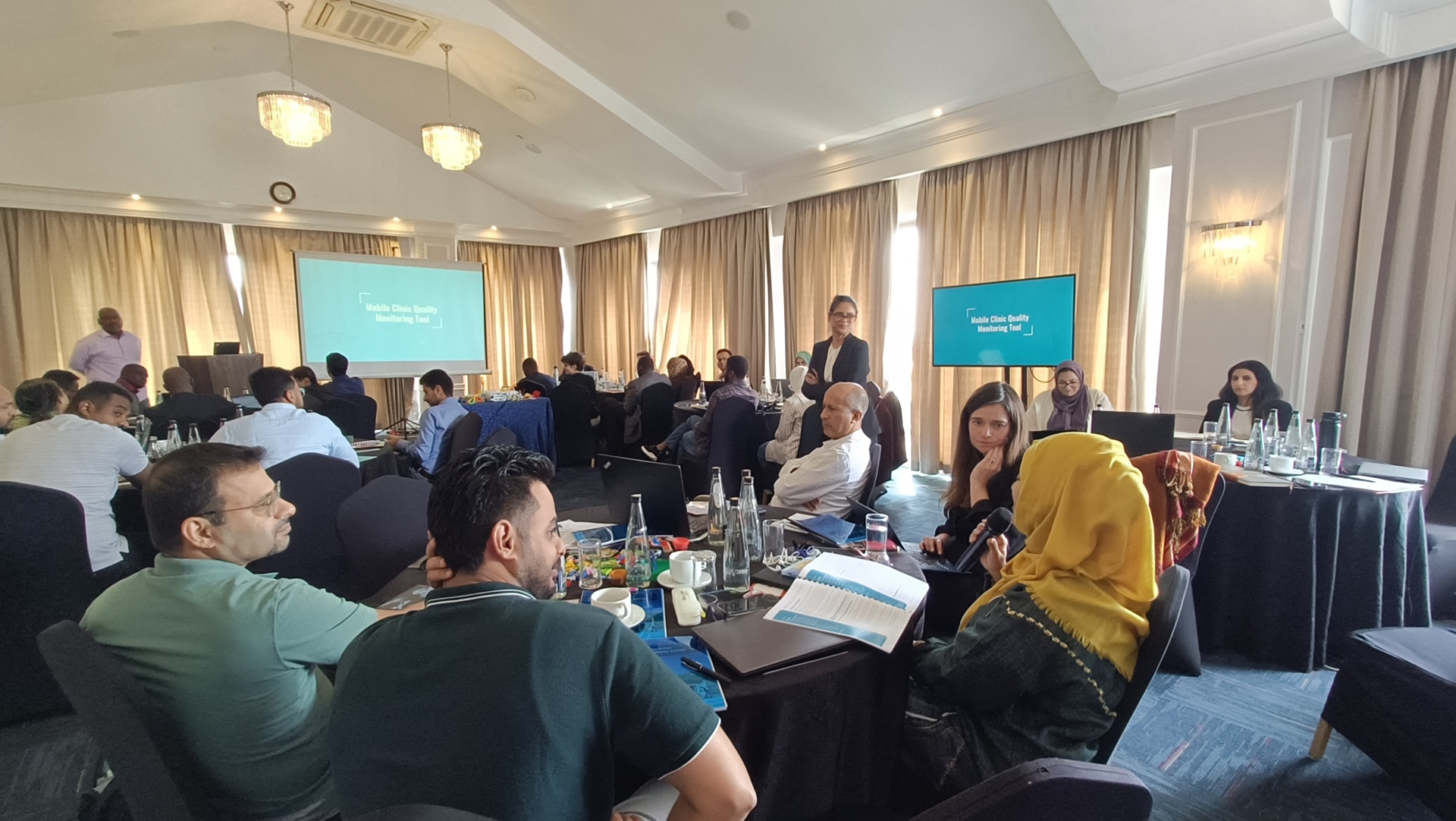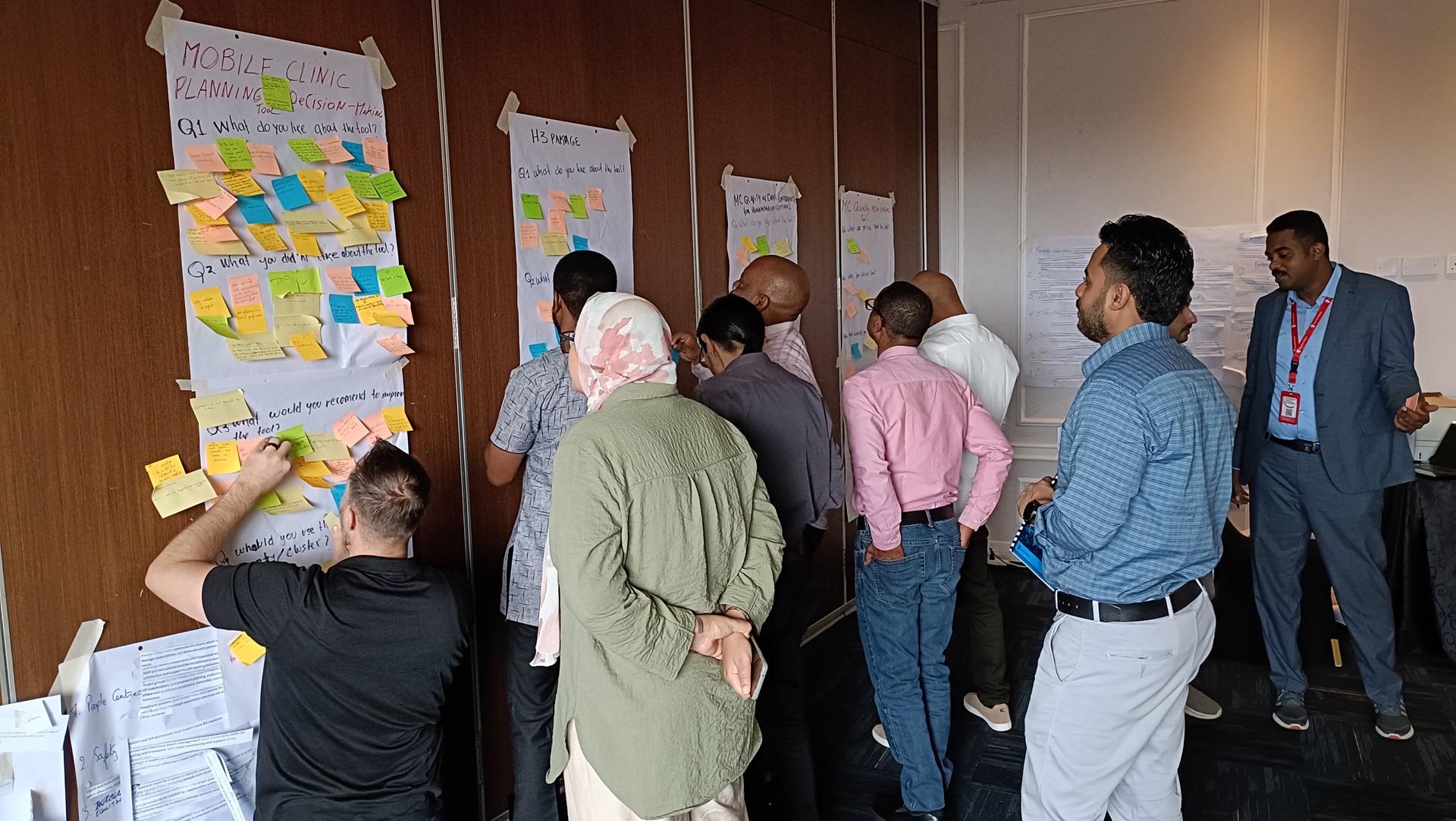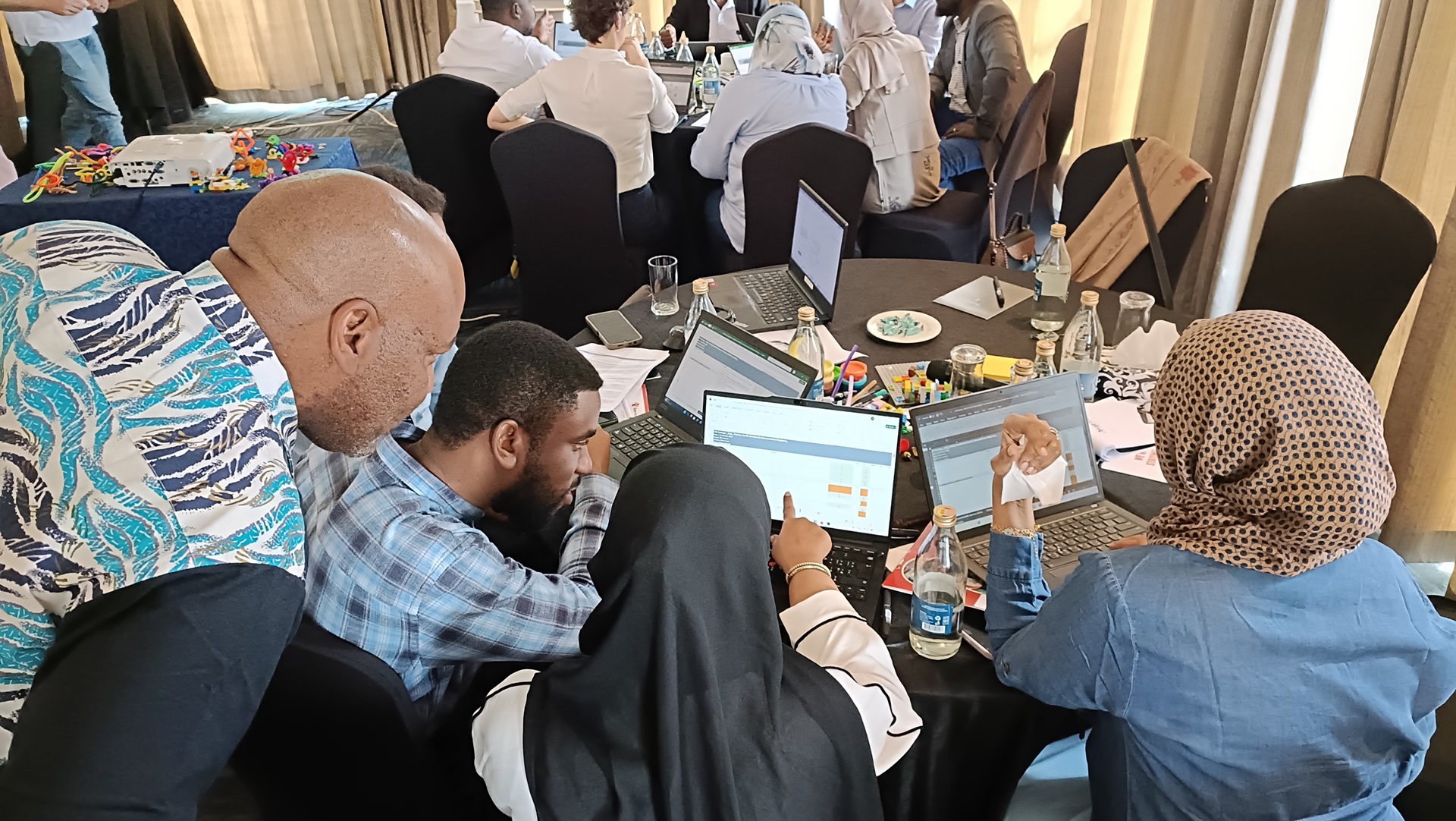In times of crisis, access to life-saving healthcare can mean the difference between life and death. When health facilities are damaged, roads unsafe, or communities displaced, reaching care becomes a daily struggle.
That’s where Mobile Clinics step in, a lifeline for families caught in humanitarian crises. Each morning, dedicated health teams travel long distances, sometimes setting up under trees, in tents, or beside damaged facilities, to bring essential services directly to children and families who might otherwise go without care.
Yet despite their vital role, and temporary in nature, there has long been limited global guidance on how to ensure quality, accountability, and sustainability in Mobile Clinic operations. To close this gap, Save the Children, with support from USAID’s Bureau for Humanitarian Assistance and in to support the Global Health Cluster, led a global and country-based qualitative research in Ethiopia, Afghanistan, and Northeast Syria. A total of 28 health partners, including local and international NGOs, coordination bodies, and donors, contributed their experiences and insights to better understand what quality looks like in Mobile Clinics across diverse humanitarian contexts. The research also directly engaged the communities served by these clinics, ensuring that community voices and perspectives shaped the findings.

Photo: ©HealthCluster
Building on these findings, 24 evidence-based quality markers were identified, forming the foundation of a practical toolkit designed to improve quality of care and strengthen Mobile Clinic operations around the world. The tools were piloted through the Ethiopia Health Cluster and Somalia health Cluster in 2024 with seven health cluster partners. Feedback from field practitioners helped refine their usability and relevance in real humanitarian contexts.
Building on this foundation and with new funding from a private donor, the Delivering Quality of Care through Mobile Clinics Workshop was held in Nairobi, 13- 17 October 2025. The event brought together 30 participants from Sudan Health Cluster, Yemen Health Cluster, and Kenya, including representatives Ministries of Health, national and international NGOs, national health cluster coordinators and the Gates Foundation.

Photo: ©HealthCluster
Over five days, participants received hands-on training on how to apply the Mobile Clinic Quality of Care Toolkit, which includes:
- The mobile clinic planning and decision-making tool
- The mobile clinic component of the H3 package
- The mobile clinic quality of care guidance for humanitarian settings
- The mobile clinic quality monitoring tool
- The mobile clinic quality improvement planning template
Through interactive scenario-based case work, participants strengthened their ability to analyze, design, and monitor high-quality Mobile Clinic interventions. The workshop fostered a strong spirit of collaboration with teams from Sudan and Yemen committing to begin applying the tools immediately within their ongoing responses.

Photo: ©HealthCluster
This workshop marks a major step forward in ensuring that health services delivered through Mobile Clinics are not only accessible, but also consistent, evidence-based, and of high-quality. It highlights the shared commitment of partners across the Global Health Cluster to strengthen the quality of humanitarian health services and improve outcomes for communities in crisis.
The journey continues. The Mobile Clinic Quality of Care Toolkit will officially go live before the end of this year, making these tools accessible to practitioners and partners worldwide supporting stronger, safer, and more equitable care for communities wherever Mobile Clinics serve.
